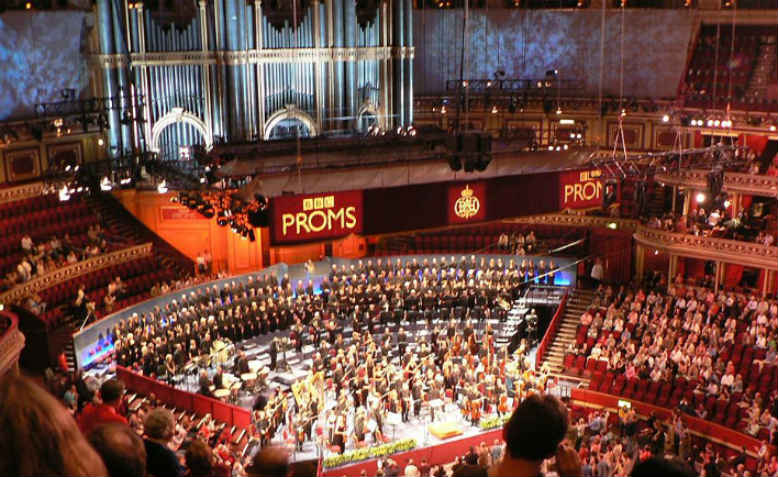 BBC Proms. Photo: Wikimedia Commons
BBC Proms. Photo: Wikimedia Commons
Richard Pratt takes on some of the arguments being made against the decision by BBC Proms to hire as many women as men as composers for the festival
The BBC Proms has pledged a 50/50 gender divide amongst composers being commissioned to write for the festival. This move was made in response to the PRS Foundation’s ‘Keychain’ initiative, which sets out to achieve equal gender representation at music festivals.
Given the emergence of some hotheaded criticism from people opposed to this particular form of ‘politicisation of classical music’ (and instead in favour of ‘selecting composers based solely on the merit of their music’), it’s perhaps necessary to stress some points in defence of the BBC’s decision.
1Considering that this concerns the commissioning process (and so necessarily music that has in fact not yet been written), to argue against an equal division between men and women, in favour of selecting people solely on the merit of their music, is to assume that the music subsequently written by the selected women will inherently be of a lesser quality than that subsequently written by the selected men.
2It’s all well and good demanding that composers be featured based solely on the merit of their music, but determining the objective quality a given bit of music is notoriously bothersome. Supposing it were possible to do, why pursue it? Neither the music-object being judged nor the tools we use to make the necessary value judgements cannot be completely abstracted from the respective societal structures that have enabled both to exist. And vital aspects of a person’s identity, over which they have no choice, and according to which they have been systemically oppressed by the establishment, are not musically irrelevant.
3To say that there is not structural discrimination against people who are not white and male, when demonstrably the field is completely dominated by white men, implies either that the domination of this field is entirely coincidental, or that there is some other reason for that domination. And that line of argument seems to imply that women and minority communities are worse at writing music.
4Supposing it turns out that women are inherently terrible at writing music (… ), is guaranteeing that we have some more music not written by women so important that obvious gender inequality is worth publicly promoting?
5Why should we be content with young women having to grow up seeing any particular profession as effectively off limits to them, that decision having been made by men historically, and enforced by men presently, by, among things, not allowing for equal representation. (This is of course similar to why the work of the Chineke! Foundation is so important for BAME representation.) And what better platform on which to see full gender equality than the publicly funded and (allegedly) impartial BBC – men don’t pay more than women for their television licenses…
6Criticism of the decision to promote the opportunity for gender equality comes from people who know that their view on this matter will not be appreciated, and will quite reliably insist that they are presenting a refreshing alternative. But we have to remember that whilst their line of argument might sound exciting and new within the liberal bubble of the contemporary arts scene, what they represent remains the establishment view, and, for the sakes of the people it’s oppressed and continues to oppress, it remains an establishment that needs to be fought against.
7To say that there was institutional discrimination once (in whatever field) but that there now isn’t seems to be historically incredibly superficial and assumes that previous states of being don’t shape the future as soon as things being to change. It’s clearly a crude methodology for breaking down historic structures of oppression, but those structures were crude and violent themselves, which we would do well not to forget.

